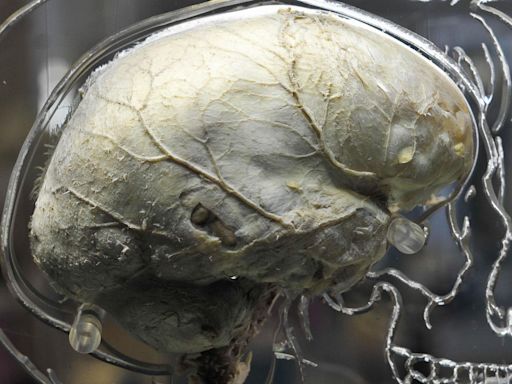Search results
Apr 5, 2024 · Overview Parkinson's disease is a progressive disorder that affects the nervous system and the parts of the body controlled by the nerves. Symptoms start slowly. The first symptom may be a barely noticeable tremor in just one hand. Tremors are common, but the disorder also may cause stiffness or slowing of movement.
Parkinson's disease ( PD ), or simply Parkinson's, is a long-term neurodegenerative disease of mainly the central nervous system that affects both the motor and non-motor systems of the body. The symptoms usually emerge slowly, and as the disease progresses, non-motor symptoms become more common.
Parkinson’s disease is a brain disorder that causes unintended or uncontrollable movements, such as shaking, stiffness, and difficulty with balance and coordination. Symptoms usually begin gradually and worsen over time. As the disease progresses, people may have difficulty walking and talking.
Know how to recognize the most common early symptoms of Parkinson's. It can be hard to tell if you or a loved one has Parkinson's disease (PD). Below are 10 signs that you might have the disease.
Aug 9, 2023 · Parkinson disease (PD) is a brain condition that causes problems with movement, mental health, sleep, pain and other health issues. PD gets worse over time. There is no cure, but therapies and medicines can reduce symptoms. Common symptoms include tremors, painful muscle contractions and difficulty speaking.
Apr 5, 2024 · Diagnosis. Currently, there isn't a specific test to diagnose Parkinson's disease. A diagnosis is made by a doctor trained in nervous system conditions, known as a neurologist. A diagnosis of Parkinson's is based on your medical history, a review of your symptoms, and a neurological and physical exam.
Apr 15, 2022 · Parkinson’s disease is an age-related degenerative brain condition, meaning it causes parts of your brain to deteriorate. It’s best known for causing slowed movements, tremors, balance problems and more. Most cases happen for unknown reasons, but some are inherited. The condition isn’t curable, but there are many different treatment options.
Jul 19, 2024 · Parkinson’s disease (PD) is movement disorder of the nervous system that gets worse over time. As nerve cells (neurons) in parts of the brain weaken, are damaged, or die, people may begin to notice problems with movement, tremor, stiffness in the limbs or the trunk of the body, or impaired balance.
Parkinson's disease is a condition in which parts of the brain become progressively damaged over many years. Symptoms of Parkinson's disease. The main symptoms of Parkinson's disease are: involuntary shaking of particular parts of the body (tremor) slow movement. stiff and inflexible muscles.
Parkinson's disease occurs when the nerve cells in your brain don't make enough of a body chemical called dopamine, which affects your movement and mood. Common symptoms may include tremors, muscle stiffness, slowing of movement and posture changes, but confirming if you have Parkinson's can take time.





